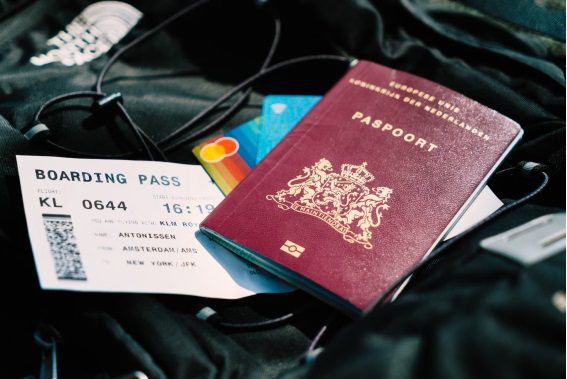 As our world becomes increasingly interconnected, a new wave of cybersecurity risks looms, particularly for unsuspecting travellers. A recent survey reveals that 85% of travellers harbour fears about being hacked while on the move.Experts from the prominent cybersecurity firm NordVPN warn that these fears are well-founded as the odds of falling prey to cybercrime substantially increase for travellers who overshare their trip details online.
As our world becomes increasingly interconnected, a new wave of cybersecurity risks looms, particularly for unsuspecting travellers. A recent survey reveals that 85% of travellers harbour fears about being hacked while on the move.Experts from the prominent cybersecurity firm NordVPN warn that these fears are well-founded as the odds of falling prey to cybercrime substantially increase for travellers who overshare their trip details online.
A seemingly innocent “airport selfie,” frequently accompanied by a shot of the traveller’s boarding pass and passport, is a common way to signal social media followers that a vacation is underway. However, this trendy snapshot can inadvertently provide hackers with a wealth of personal information and catalyze a ruined holiday.
According to Adrianus Warmenhoven, a top cybersecurity expert at NordVPN, hackers can derive surprising information from the innocuous-looking barcode on your boarding pass. “Just from a photo, cybercriminals can scan the barcode to access the traveler’s full name, reservation number, passenger name record, and sometimes even contact information,” Warmenhoven explains.
The potential ramifications are alarming. Cybercriminals can use the extracted data to access a passenger’s airline account, pilfer their mileage points, or even alter the details of future flights. Even if the traveller is not a frequent flyer with a significant stash of mileage points, the hacker can exploit the situation in other ways. They might pose as an airline representative, call the traveller during their trip, and request credit card details to confirm a return flight.
With information gleaned from a boarding pass and additional details unearthed from social media, cybercriminals have enough ammunition to convincingly impersonate a traveller and convince even the most security-conscious travel agency or airline company to reveal sensitive customer information.
But the threats don’t stop there. Once cybercriminals compile a substantial database of their victim, they can sell this information on the dark web or even steal the victims ‘ identities. This could lead to fraudulent activities such as opening credit card accounts or making unauthorized purchases in the victim’s name.
So, how can you balance staying connected online and ensuring your cybersecurity? Warmenhoven of NordVPN suggests several precautionary measures:
- Delay posting: To maintain your security, avoid posting photos or information about your vacation while you’re still away.
- Privacy settings: Ensure that your account settings are private and that your posts are only visible to your friends rather than everyone on the internet.
- Avoid oversharing: Refrain from sharing personal details on your profile pages, like your home address or phone number. Also, avoid making status updates sharing your current location and never posting photos of your passport, plane tickets, or other personal documents.
- Beware of public Wi-Fi: Public Wi-Fi networks, often provided by cafes, shops, and hotels, are usually unsecured and can be easily monitored. If you must connect, secure your connection or use a VPN.
Cybersecurity becomes integral to our everyday lives as our digital and physical lives intertwine. These simple precautions can ensure that cybersecurity concerns don’t taint your well-deserved vacation. Instead, you’ll have peace of mind to truly enjoy your getaway, knowing that your digital life is secure, no matter where you might be.

